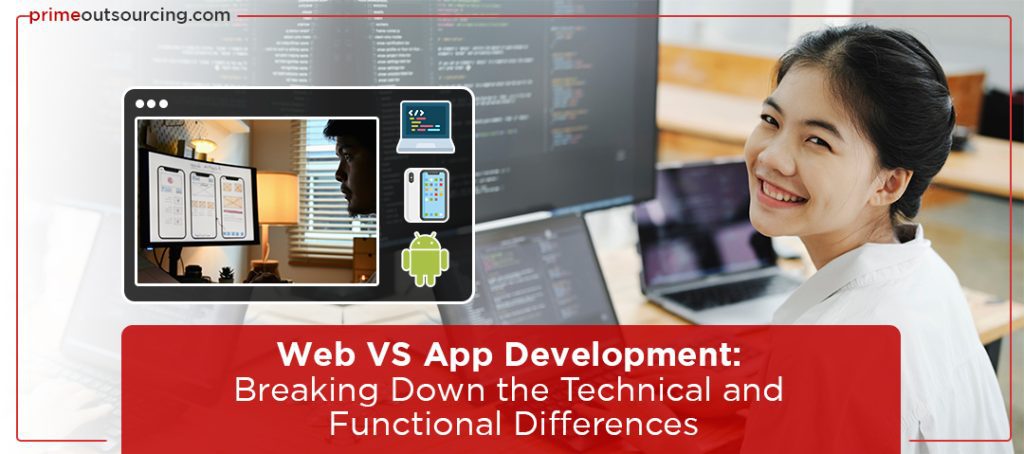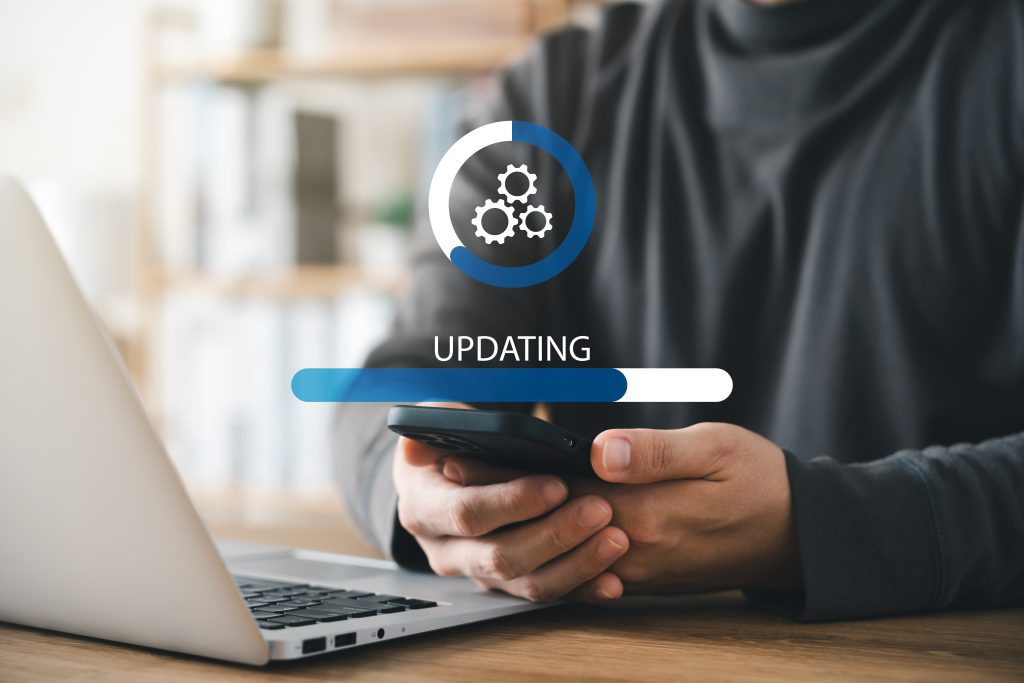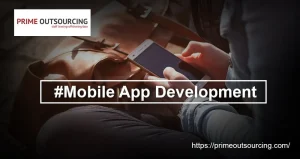
Have you ever paused and wondered why some businesses launch a website while others go all in with a mobile app? Or why your favorite online store is so smooth on your desktop, but its app version feels like a different world altogether? That’s because web and app development are two different processes, each with its own set of guidelines, resources, and objectives.
To help you better grasp the main distinctions between web and app development, we will break it all down, both technically and functionally.
Why Does Choosing Between Web and App Development Matter?
Your digital platform stands in front of your business. Selecting the wrong type of development might:
- Reduce the size of your audience.
- Increase your long-term costs
- Affects usability and performance
- Influence client retention and conversion rates
Knowing the ins and outs of web and app development assures that you’re establishing something that will serve your business goals rather than merely being functional.
Web VS App Development: Their Key Differences
1. Platform Accessibility
Websites are accessible in any browser or any device, while apps have to be formatted for every operating system.
2. Development Languages
The ease of team management is facilitated by the use of coding languages that are used universally on the web. An app needs a native or hybrid language, depending on features and the amount of complexity.

3. User Interface and Experience
Because they can provide faster, tailored interfaces and accommodate more easily devices such as webcams or GPS, applications are best suited for more interactive or service-oriented platforms.
4. Performance and Speed
Since applications are device-native and can store information locally, they tend to be more responsive than websites.
5. Updates and Maintenance
Websites are easier to update and don’t need user interaction, as opposed to mobile apps, which might take longer because of app store approvals and user compliance.

To give you a clear and quick overview, here’s a comparison table that breaks down the most important differences between app and web development:
| Aspect | Web Development | App Development |
| Platform | Browser-based; accessible via URL | Platform-specific (iOS, Android) |
| Access | No download required; instant access | Requires installation via app stores |
| Languages Used | HTML, CSS, JavaScript, PHP, Python | Swift (iOS), Kotlin/Java (Android), Flutter, React Native |
| User Experience (UX) | Good but limited by browser capabilities | High-quality, immersive experience |
| Speed and Performance | Relies on internet and browser | Faster; can use local storage and device resources |
| Offline Capability | Mostly online; limited offline use | Full offline functionality possible |
| Updates and Maintenance | Easy updates, live for all users instantly | Requires user update through app store |
| Development Cost | Lower initial cost; one codebase for all | Higher cost; may need separate versions for each platform |
| Security | HTTPS, server-side protections | More secure via device-level features (biometrics, sandboxing) |
| Monetization Options | Ads, subscriptions, e-commerce | In-app purchases, ads, subscriptions, app store monetization |
Pros and Cons of Web and App Development
Web Development
Pros
- Simple and quick access
- Wide range of device compatibility
- Faster development and lower costs
- Easier to update and maintain
Cons
- Limited access to the device functions
- Dependent on internet connectivity
- Not ideal for applications with a high level of interaction

App Development
Pros
- Improved and smoother user experience
- Full access to the device’s GPS, camera, and sensors
- The capability to run offline
- Push notifications to encourage users to interact again
Cons
- More expensive to develop and maintain
- Approval by the app stores.
- Development specific to a specific platform can be time-consuming.
When to Choose Web Development
- You need a basic online presence (like blogs, service pages, portfolios).
- You aim to reach the maximum number of people in a short while.
- You desire rapid iterations without any delays in the app store.
- Your platform is content-driven, e.g., marketing, education, or news.
When to App Development
- You need to create user-oriented platforms such as social media, shopping applications, or personalization tools.
- You need advanced capabilities on your device in the form of a camera, Bluetooth connectivity, and location services.
- Your app must have native performance or be usable offline.
- App-loving mobile-first users are your target user base.

The Bottom Line: What’s Best for You?
A smart combination of corporate objectives, target audience behavior, technical specifications, and financial constraints should ultimately guide your choice. Sometimes, “web then app” is a better response than “web or app.”
Begin with one, gain knowledge, develop, and then scale.
Don’t Just Decide—Strategize with Experts
Making a choice between web and app development is something Prime Outsourcing Inc. can assist you with, whether you’re starting from scratch or organizing your next significant upgrade. Our team of experts is prepared to evaluate your objectives, provide the optimal technology stack, and create a solution that produces outcomes.
Don’t guess; get professional guidance. Get in touch now, and together, we can confidently construct your digital future. Build for the future—with the right team by your side.


